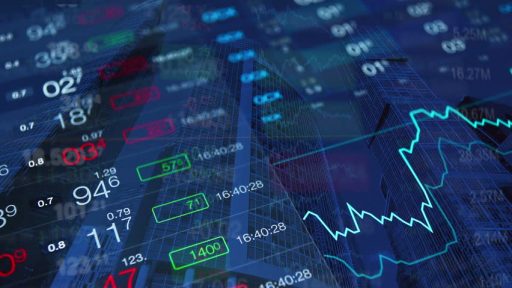- Home
- >
- FX Daily Forecasts
- >
- These are the 2 biggest reasons for a weaker U.S. dollar

These are the 2 biggest reasons for a weaker U.S. dollar

A persistently weak dollar is confounding currency traders and roiling global financial markets.
Investors across asset classes are feeling the effects of the buck’s rocky start to the year, with the ICE U.S. Dollar Index DXY, +0.24% a measure of the currency against six major rivals, dropping 3.5% in the year to date, adding on from its 10% loss last year. Last week alone, the buck dropped 1.7%.
So what’s been driving the dollar? Here are the two main culprits:
Central bankers and the new gang at the Federal Reserve
Central bank policy is thought to be one of the biggest drivers of currencies, so the Fed’s hawkishness and expectations for three rate increases in 2018 seem to contradict the buck’s soft performance. But it might be a case of the grass being greener on the other side. of the pond.
“The market thinks it knows what the European Central Bank is going to do and it’s nervous about the Fed’s new regime,” argued Steven Englander, head of research and strategy at Rafiki Capital Management.
The ECB is lagging behind the Fed in ending its quantitative easing program and raising interest rates, but hawkish expectations paired with strong economic data have made the shared currency more attractive, allowing it to strengthen versus its U.S. rival.
Meanwhile, Janet Yellen is chairing her final meeting of the Fed. Incoming Chairman Jay Powell represents a new and unknown era, and traders wonder whether he will honor Yellen’s legacy of gradual policy normalization.
“Fed chairs are different than Treasury secretaries where you know what their stances on policies are,” Englander said. “Powell hasn’t been very outspoken, so the dollar is trading cautiously in response. The question is also whether the Fed will be more open to political pressure.”
Trade policy and the administration’s stance on the dollar
Caution was also getting the better of traders, with the dollar index retreating as market participants looked hoped for more clues about the administration’s trade policies in President Donald Trump’s State of the Union address on Tuesday night, but were disappointed.
“The forces that are now driving the dollar to weaken are structural and political rather than cyclical as the U.S. administration focuses on trying to reign in its external imbalances,” wrote HSBC analysts led by David Bloom, global head of FX research.
Last week, comments from Treasury Secretary Steven Mnuchin and President Trump caused volatility in the buck, as Mnuchin said a weaker dollar would be good for trade. As the greenback was already on its back foot, this brought on the question whether the government was abandoning the strong-dollar policy that’s been in place since the mid-1990s.
The Trump administration has been vocal in criticizing bilateral U.S. trade deficits and President Trump commented on the strong dollar during his campaign. So all in all, “it may be more palatable to policy makers globally to accept some modest dollar weakness in the near term if that curbs some of the more active protectionist policy leanings of the current U.S. administration,” the HSBC analysts wrote.
The bottom line, however, is that currency analysts have a hard time judging which way the administration will swing. In the renegotiation of the North American Free Trade Agreement between the U.S., Canada and Mexico, for example, progress seems to have been made, just weeks after Canadian officials spoke of an increased possibility of the U.S. withdrawing from the trade pact altogether.
The stakes are high, but uncertainty is running even higher.
Source: Bloomberg Pro Terminal
Jr Trader Alexander Kumanov
 Varchev Traders
Varchev Traders Read more:
If you think, we can improve that section,
please comment. Your oppinion is imortant for us.











